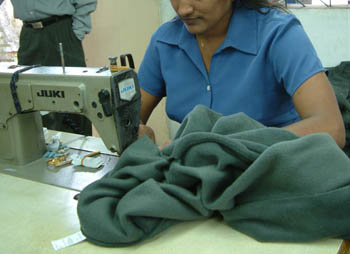Sri Lanka prepared to face the GSP Plus withdrawal challenge: Central Bank
July 2, 2010 11:59 pm
While the prevailing crisis in some of the economies in the EU region has added to the difficulty of continuation of the GSP+, the CBSL has regularly cautioned all stakeholders about the uncertainties surrounding the continuation of the facility and advised all to prepare for the its discontinuation, states the Central Bank of Sri Lanka.
The statement goes on to say:
Current reports indicate that the Generalized System of Preferences plus (GSP+) facility granted by the European Union (EU) would not be available for Sri Lanka after 15 August 2010, and based on such reports, there has been considerable speculation.
Hence, the Central Bank of Sri Lanka (CBSL) wishes to clarify the position with regard to the GSP+ scheme’s impact vis-à-vis Sri Lanka.
As presently constituted, the GSP+ scheme provides certain duty concessions to imports from a few selected developing countries to buyers in the EU. Such concessions are entirely non-reciprocal. Naturally, therefore, a significant risk of withdrawal of such concessions by the EU authorities at any point of time, is carried by the recipient country exporters.
While the prevailing crisis in some of the economies in the EU region has added to the difficulty of continuation of such concessions by the EU, the CBSL has regularly cautioned all stakeholders about the inherent uncertainties surrounding the continuation of the GSP+ facility, and advised all to prepare for the inevitability of the discontinuation of the scheme.
As a consequence, this issue has been discussed widely over the past two years, and the government, CBSL as well as many Sri Lankan exporters to the EU have already taken many measures to deal with this risk.
Some of these measures are highlighted below:
* Improving the Sri Lankan business environment and confidence levels significantly, by ending the conflict.
* Stabilizing and improving almost all macro-economic fundamentals, including in particular;
* Achieving a low level of inflation, thereby significantly reducing the pressure on cost of inputs;
* Establishing lower rates of interest, thereby substantially reducing the cost of borrowing;
* Building up foreign reserves to historically high levels, thereby enhancing investor confidence in the Sri Lankan economy;
* Ensuring stability in the Sri Lanka rupee exchange rate, thereby enhancing predictability of the domestic foreign exchange market;
* Establishing an enabling environment where Sri Lankan businesses could access international capital and debt markets for funding requirements at lower costs;
* Achieving political stability in the country, thereby further improving confidence and reducing policy uncertainties;
* Obtaining the removal of Sri Lanka from the list of countries described a “high war risk” countries by underwriters;
* Improving internal work processes and systems of exporting entities, thereby leading to substantial productivity enhancements.
Accordingly, the CBSL now believes that the focused and long-term preparations to face the emerging conditions, in addition to the firm level actions taken towards diversifying markets, negotiating with buyers, enhancing productivity, and reducing finance and input costs, has gradually offset the possible decline in competitiveness arising from the withdrawal of the GSP+ concessions.
For purposes of record, apparel exports to EU countries constituted about 50 per cent of total apparel exports in 2009. Of such exports, about 60 per cent benefited from the GSP+ scheme, while the balance was exported to the EU without the GSP+ concession. On a net basis, the total value of the benefit to the buyers in the EU as a result of the GSP+ concession has been estimated at around euro 78 million.
It must be noted that Sri Lankan industries have proven their resilience amidst challenges on earlier occasions. The apparel sector, in particular, resisted strong competition from low cost garment producers of other countries during the phasing out of the Multi-Fiber Arrangement. At that time, not only did they adjust to the new and challenging circumstances, but actually emerged stronger to deal with the risk and expand their share in the world market. In a similar manner, with the impact of the above measures, it is likely that Sri Lankan industries would overcome the non-GSP+ challenge, and emerge even stronger.












